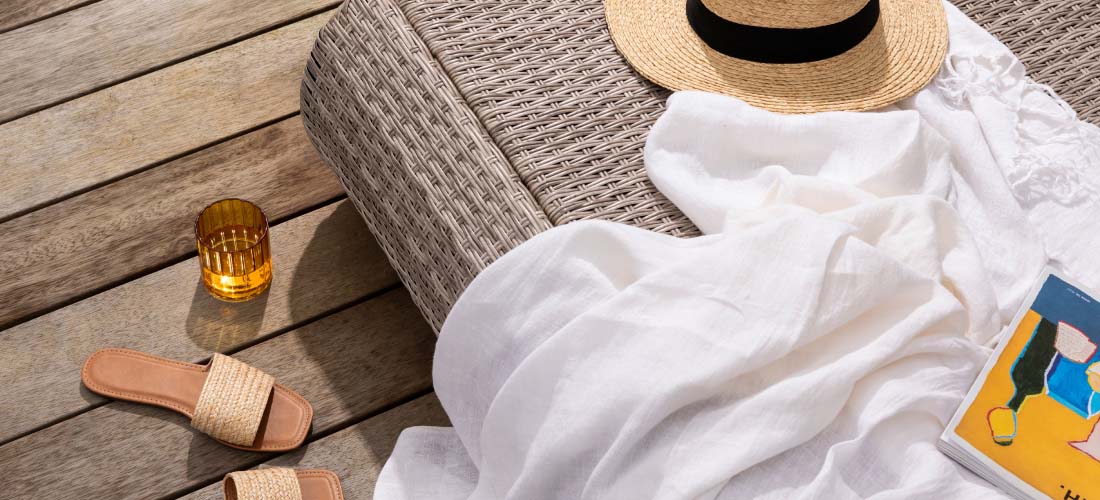
How to start a self-care routine you’ll actually stick to
You take care of everyone else – but are you taking care of yourself? If the answer is no, that’s not surprising; the words ‘self-care’ are tossed around so often that most of us don’t even know what it means, let alone how to do it.
Social media could be responsible for much of the confusion, with posts about luxurious beauty rituals and extravagant shopping binges, making self-care seem like something only cashed-up reality TV stars can afford.
Thankfully, Australian psychologist Dr Tim Sharp, aka Dr Happy has dedicated his career to enhancing happiness in people through his organisation, The Happiness Institute. As an internationally renowned leader in the field of positive psychology, he says ‘self-care’ is absolutely something we can all do for our wellbeing – and it’s easier than you might think.
‘Self-care need not be expensive, or even cost anything at all,’ he says. ‘Sure, there are plenty of ways one can spend money on health and wellbeing, but there are also numerous strategies – effective and proven strategies – that can be practised for free.’
What is self-care?
Put simply, self-care means engaging in activities that meet your physical, mental, and spiritual needs. In the same way you make sure you’ve always got enough petrol in your car, self-care is a way of making sure you’ve got enough fuel for your body, brain, and spirit.
While it might sound like shorthand for pampering or treating yourself, self-care is not a luxury, Dr Sharp says – it’s a fundamental part of being human. It helps us stay physically well, manage stress and burnout, and reduce the likelihood of chronic illnesses and mental health challenges.
‘It’s important because without it one can’t do much of anything,’ Dr Sharp explains. ‘It’s hard to be happy or successful if you’re sick and tired, and if you don’t take care of yourself, you can’t take care of others.’
Another common misconception is the idea that self-care is selfish. ‘This is definitely not true. Self-care is a prerequisite for other-care; being healthy and happy allows us to do more good to and for others,’ Dr Sharp says.
What activities are considered self-care?
The ways to look after yourself will be different for everyone, and could include everything from staying hydrated each day through to unfollowing social media accounts that make you feel bad about yourself. Here are some of Dr Sharp’s suggestions:
- Exercising regularly
- Prioritising sleep
- Practising gratitude and appreciation
- Eating healthy meals
- Practising meditation or other forms of relaxation
- Setting and working towards meaningful goals
- Writing to-do lists for the day or week ahead
- Building and maintaining good-quality relationships
- Reaching out and asking for help when you need it
- Having fun! Spending quality time on activities you enjoy.
‘Being healthy and happy allows us to do more good to and for others.’ - Dr Sharp.
How to find your version of self-care
To figure out what self-care looks like for you, hone in on the activities or habits that invigorate you or reduce your stress levels. They could be practical things, like keeping your space tidy or regularly reviewing your spending, or hobbies that you love.
Next, you’ve got to make it a regular habit. If you wait until you ‘find’ time for self-care, it probably won’t happen very often – and that’s why you need to schedule it, says Dr Sharp. ‘Nothing gets done that’s not at or near the top of your priorities,’ he explains.
‘And ensure that you think about it in helpful and positive ways – that is, that it’s good for you and for others, NOT that it’s selfish or indulgent. Then, start small and build, slowly and gradually, until it becomes habitual – until it’s just what you do.’
Feeling time poor? Thankfully, even small pockets of time can be turned into self-care opportunities. For example, if a 20-minute meditation is way out of reach, try one of the five-minute meditation exercises on apps such as Headspace during your lunch break (a self-care-at-work win!).
Remember, too, that self-care gives back much more than the time it takes; you’ll have more energy, better focus and will be more productive and calm in the long run. In fact, research shows it can help you perform better in all areas of your life.
Finally, if you feel guilty about spending time on yourself, and worry that you’re taking away time from your family, remember that your commitment to self-care actually makes life better for everyone. As Dr Sharp explains, you can’t be the person you want to be if you’re not practising self-care regularly.
‘I’d encourage people to think about what they need to do for themselves if they want to be selfless, generous, giving and caring,’ he says. ‘Can they do what they want for others if they’re sick and tired and miserable? Alternatively, are they more likely to be able to be good partners, parents, friends, or colleagues if they’re feeling good and have good energy?
It’s like that old metaphor of the plane safety instructions: put your own mask on first, then help others.’
Look after yourself financially with a myBOQ account
If you have a Future Saver account on the myBOQ app, you can practise self-care for your finances through tracking your spending, setting budgets and up to 9 savings goals for your money. So, what are you waiting for?


